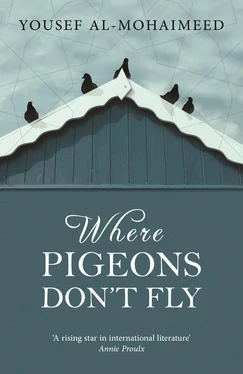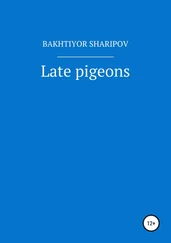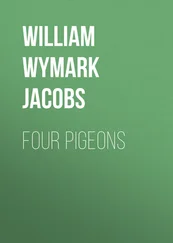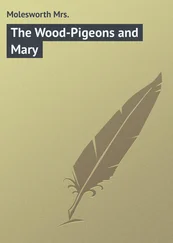Al-Mohaimeed Yousef
Where Pigeons Don't Fly
It is the severest of torments to be granted a mind that protests in a society that does not
Abdullah al-Qaseemi
Part 1. A neck, a sword and leaden air
Riyadh:
Shepherds
Driving the flock
To the wolves.
Ali al-Amri, The Widows’ Sons
As the train moved out of Liverpool Street station at sunset on that mild July day in 2007 and headed north towards the coastal town of Great Yarmouth, Fahd al-Safeelawi felt happy.
He had granted himself a two-day break from his exhausting job at the print and copy shop in order to wander the streets and parks of London, taking up residence in a modest hotel in Queensway near Hyde Park. He had frequented a small Lebanese restaurant where he tasted white rice again after a long abstinence and an unassuming Iranian place where the tubes from shisha pipes crept like serpents between the cane chairs scattered about the entrance. He had discovered a little pub with a wonderful Victorian atmosphere called The Happy Lion and spent his time roaming between Oxford Street and Trafalgar Square and sitting in new bars and cafés down by the river near London Bridge.
Once inside the carriage he found a seat by a table on which he placed the backpack that had become part of his body and from its side-pocket pulled out a bottle of water and a box of Panadol Extra bought from a chemist’s on Edgware Road. He pushed a tablet to the back of his throat, followed it with a swig of water, then did it again. From the bottom of the bag he took out The Painted Kiss by Elizabeth Hickey, a novel about the relationship between Gustav Klimt and his young lover, Emilie, whose name Klimt had uttered as he died. Grown old, Emilie looks back over her life, from when she was a twelve-year-old schoolgirl taking art lessons from Klimt to the moment she moved his paintings from Vienna to the Austrian countryside. The book reminded Fahd strongly of a film he had seen a year ago, Girl with a Pearl Earring , adapted from a novel about the life of Dutch artist Johannes Vermeer, who painted a portrait of the same name. There was a delightful interplay between the two great novels.
Fahd followed the flocks of words and then rested his head against the cold windowpane. He almost immediately dozed off and while he slept the train began to move. He woke suddenly, to find himself confronted with an elderly Englishwoman, sitting in the seat opposite and smiling at him. She was turning the pages of an interior décor magazine with a fascination only broken by his startled coming to. He began looking out at the greenery, the tiled houses, the cows and sheep as they passed before him like a rapidly spooling film reel.
He thought of his close friend Saeed, who had called to check up on him three times in the nearly eleven months he had spent in Britain. Fahd considered rewarding him for these phone calls and his rare loyalty by surprising him with a call of his own from ‘the lands of the Franks’ as Saeed called them. There weren’t many names in his mobile’s address book: Hank, his friend Badr al-Ha’ili, a young Frenchwoman called Linda, Santia, his girlfriend and fellow student at the Spanish language school, and Neil, the young accountant who ran the print shop. And then there was Saeed, his friend from childhood and his shameless, wild youth in Riyadh.
When he dialled the number and put the phone to his ear it wasn’t the standard ring tone that he heard but a song: a song that wiped out everything that had become his world and hurled Great Yarmouth into the sea, as though this unexpected song had the power to shove the peaceful town, with its old buildings, churches, pubs and promenade of white sand, its funfair and kind-hearted people, into the North Sea. And not only had the town flown away, but with it all the language, companions and contentment of his new life.
Fahd felt a great yearning squeeze his neck and set his eyes streaming. At the same instant he was possessed by fear, a terror of the sheikhs — the fat men with long black beards he always saw at night, advancing with sharpened lances with which they pierced his pillow and riddled it with holes, the white feathers flying out until he couldn’t breathe, and he would awake in a panic, feeling that he was choking.
He put the mobile down in front of him and, resting his elbows on the table, he held his head in his hands and began to cry, his slender body shaking with a strange hysteria. The elderly Englishwoman started towards him, gently touched his arm and murmured, ‘Are you all right?’
‘Yes,’ he said, mortified, ‘I’m fine,’ and turned his tearful eyes to the window.
— 1 —
TARFAH AL-SAMITAN DIDN’T LIKE books that much, though she read crime stories and romances; she much preferred music and dancing. She loved Khaled Abdel Rahman’s melancholy voice, just as she loved Snickers and the Hilal football team and was obsessed with fashion accessories and sex.
Late one morning in July 2006, Fahd had pulled over to wait for Tarfah outside Jarir Bookstore on King Abdullah Road, and she emerged at her slow, assured pace carrying a red carrier bag and a handbag. She got into the little car and as always, warned him not to set off until she had settled comfortably in the passenger seat. He turned the key and said, ‘Where to?’
She didn’t have much time; she had to be back at the Academy in an hour.
‘Shall we get a coffee at Starbucks?’
‘Sure, but I thought Java Café had nicer coffee.’
Raising her abaya over her head she said, ‘As you like, sweetheart!’ He went with her suggestion, though he didn’t agree that they should take the coffee with them as they drove around in the Riyadh morning.
At the Starbucks in Wuroud he veered right towards the entrance to the family section.
There was nobody about that morning other than a solitary van with an Indonesian driver sitting inside. Fahd parked next to him and turned off the engine. Tarfah hesitated.
‘Do you still want to do this?’ she asked.
‘How do you mean?’
‘Wouldn’t it be better to bring the coffees to the car and go?’
He pulled the key from the steering column. ‘It’s better that we sit down, so I can get a look at you.’
She glanced over at the Indonesian. ‘I don’t know. To be honest, the morning is a scary time.’
‘Don’t worry yourself; it’s all fine,’ he said confidently, opening the door.
He got out and she calmly followed holding her carrier bag and the handbag embroidered with shield-bearing horsemen. They entered through a door on which swung a sign: Families Only . The place was filled with the invigorating smell of coffee. The glass door slid open and as the door glided slowly shut she held her forefinger to his mouth, touching it then taking it beneath her veil and giving it a kiss.
‘Honey!’
Casting his eye over the partitioned wooden rooms with their hinged doors, he chose the furthest and held open the door, stepping back to make way for Tarfah, who brushed past, her eyes on his.
‘Cappuccino?’ he asked.
‘Anything from my sweetheart’s hand is sweet.’
Fahd stood facing the Filipino employee while a young Saudi with his back turned scoured a milk jug with steam. He ordered a large cappuccino and a hot chocolate and had just glanced at the doughnuts and cookies behind the glass when he felt a draught brush him from behind. He wasn’t sure: had the outer door to the family section opened? Was it the wind of some ancient angel, lying in ambush? Was that the odour of Friday prayers? Of a damp toothpick? Was it agarwood oil, perhaps, or Indian incense from a Friday night wedding? Perhaps it was all of these. But one thing it most certainly was not, was the scent of a female body preceded by her perfume.
Читать дальше












